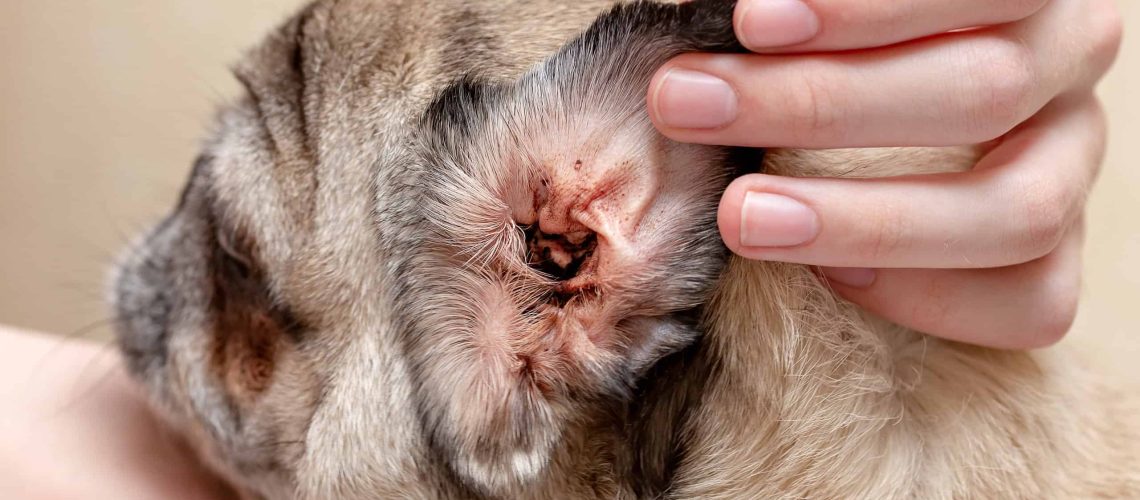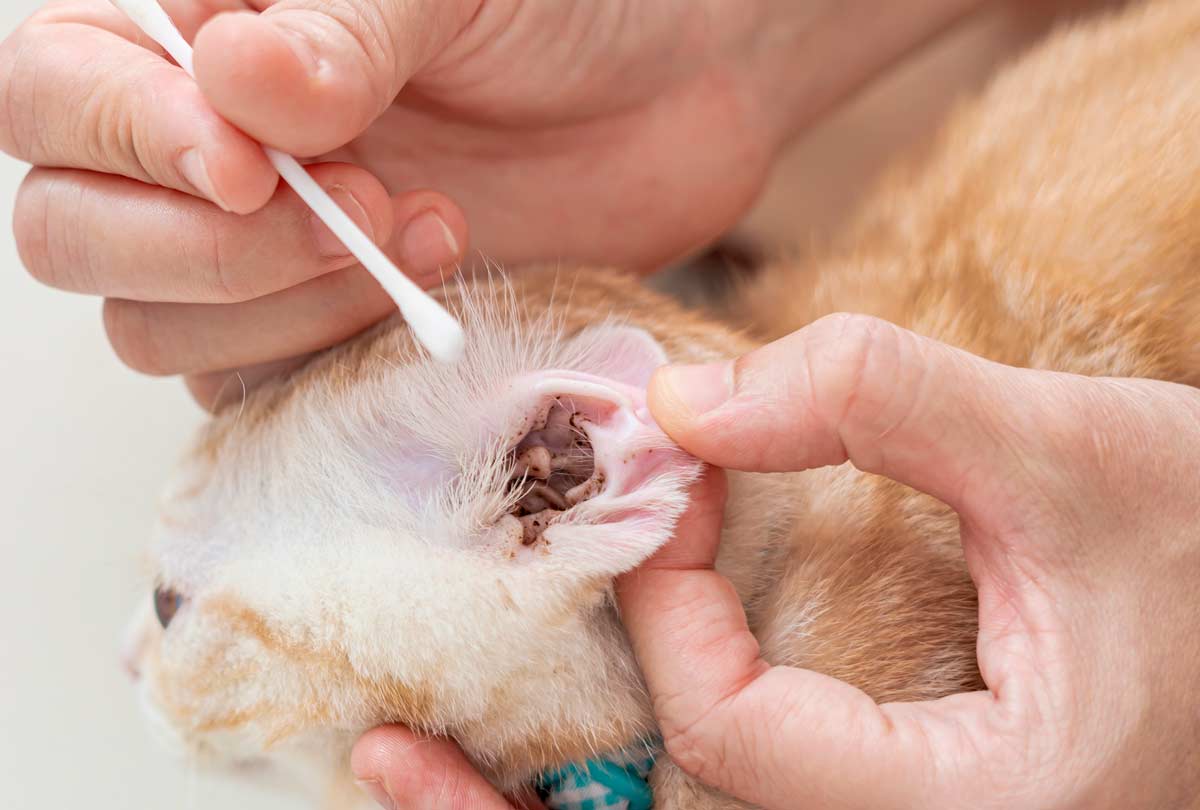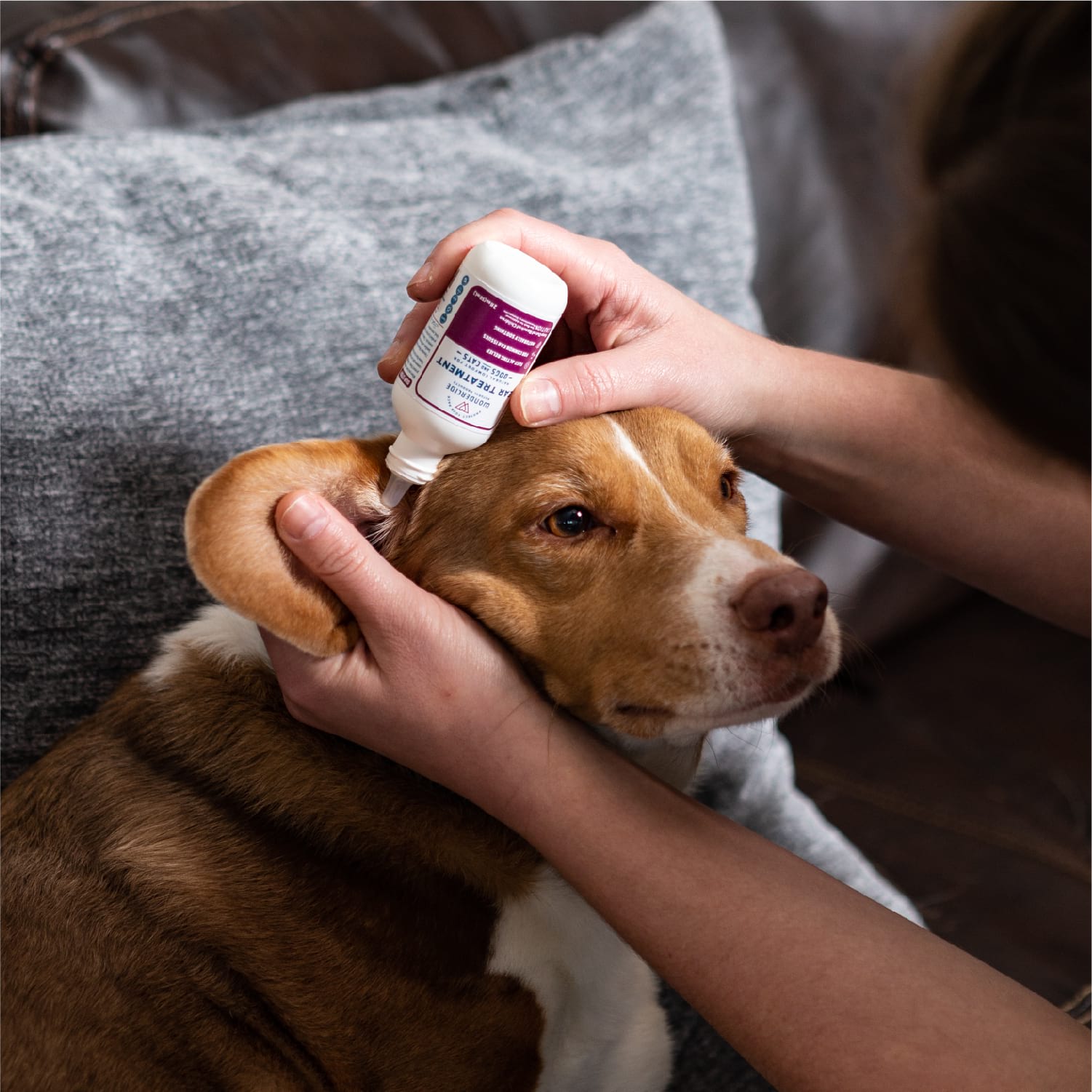Key Takeaways:
- Ear mites are a common parasitic infection in puppies and dogs.
- They are highly contagious and can spread easily between animals.
- Symptoms of ear mites include excessive scratching, head shaking, and dark discharge in the ears.
- Early detection and treatment are crucial to prevent complications and discomfort for the dog.
- Veterinary intervention is necessary to diagnose and prescribe appropriate medication for ear mite infestations.
Are you a dog lover? Do you have a furry friend at home who brings endless joy and companionship to your life? If so, then understanding the topic of ear mites in puppies and dogs is crucial for their well-being. These tiny pests may seem harmless, but they can cause discomfort and even lead to serious health issues if left untreated. By delving into this subject, you will not only gain valuable knowledge about how to protect your beloved pet, but also ensure their happiness and longevity. So, let's dive into the world of ear mites together and embark on a journey that will empower you as a responsible dog owner. Get ready to discover eye-opening facts and practical tips that will make a real difference in your furry friend's life!
What are ear mites and how do they affect puppies and dogs?
Ear mites are tiny parasites that can infest the ears of puppies and dogs. These mites, known as Otodectes cynotis, feed on the wax and oils in the ear canal, causing irritation and discomfort for your furry friend. They are more commonly found in puppies but can affect dogs of any age.
When a puppy or dog has ear mites, they may experience symptoms such as frequent scratching of the ears, head shaking, and a brown or black discharge in the ear. The constant itching can lead to secondary infections if left untreated. Ear mites can also cause inflammation and thickening of the ear canal lining.
Common signs of ear mite infestation include:
- Frequent scratching of the ears
- Head shaking or tilting
- Brown or black discharge in the ear
- Redness or swelling of the ear canal
- An unpleasant odor coming from the ears
How do ear mites spread?
Ear mites are highly contagious and can easily spread from one dog to another through direct contact. They can also be transmitted from cats to dogs, so if you have both as pets, it's important to treat all affected animals. Ear mites can survive for several days off the host animal, so bedding and grooming tools should also be cleaned thoroughly to prevent re-infestation.
Treatment options for ear mites in puppies and dogs
If you suspect your puppy or dog has ear mites, it is crucial to seek veterinary advice for an accurate diagnosis. Your vet will perform an examination and may recommend a few treatment options depending on the severity of the infestation.
One common treatment is the use of medicated ear drops or ointments that contain ingredients to kill the mites and soothe the inflammation. These medications are typically applied directly into the ear canal for a specified period, as directed by your vet.
Other treatment options may include:
- Oral medications: In severe cases, oral medications may be prescribed to help eliminate the mites from within.
- Cleaning solutions: Your vet may provide a cleaning solution to remove any discharge or debris from your dog's ears before applying medication.
- Follow-up appointments: It is essential to follow up with your vet for re-evaluation and further treatments if necessary.
Home remedies to help treat ear mites in puppies and dogs
While it is crucial to consult a veterinarian for proper diagnosis and treatment, there are some home remedies that can provide temporary relief for your puppy or dog until you can get them to the vet. However, these should not replace professional veterinary care.
Gentle cleaning:
You can gently clean your dog's ears with a damp cloth or cotton ball soaked in warm water. This helps remove any discharge or debris that may be irritating their ears. Be careful not to insert anything deep into the ear canal, as this can cause injury.
Natural remedies:
Sometimes, natural remedies like diluted apple cider vinegar or mineral oil can help suffocate and kill ear mites. However, it's important to consult with your vet before trying any home remedy, as some substances may be harmful or ineffective.
Frequent grooming:
Maintaining good hygiene and regularly grooming your dog can help prevent the spread of ear mites. Regularly check their ears for any signs of infection or infestation, and keep their bedding clean.
Preventive measures to reduce the chances of your puppy or dog getting ear mites
Prevention is always better than cure when it comes to ear mites. While it may not be possible to completely eliminate the risk, there are steps you can take to reduce the chances of your puppy or dog getting ear mites.
Regular cleaning:
Clean your dog's ears regularly with a veterinarian-approved cleaning solution. This helps remove excess wax and debris, reducing the likelihood of mite infestations.
Avoid contact with infected animals:
If you know that an animal has ear mites, try to avoid direct contact between them and your puppy or dog. This can help minimize the risk of transmission.
Treat all pets in the household:
If one pet in your household is diagnosed with ear mites, it is important to treat all other pets as well, even if they do not show symptoms. This prevents the mites from spreading and causing further discomfort.
Can humans get infected with ear mites from their puppies or dogs? Preventive steps to take
While it is rare for humans to get infected with ear mites from their puppies or dogs, it is still possible. Ear mites prefer animals as hosts and may not survive for long on human skin. However, it's always best to take preventive measures to minimize any potential risk.
To reduce the chances of transmission:
- Avoid close contact with your pet's ears if they have ear mites.
- Wash your hands thoroughly after handling an infected pet.
- Clean and disinfect any surfaces or objects that may have come into contact with the infected pet's ears.
If you experience any unusual symptoms, such as itching or irritation in your own ears, it's advisable to consult a healthcare professional for appropriate diagnosis and treatment.
Preventive measures to reduce the chances of your puppy or dog getting ear mites
Regular ear cleaning
Regularly cleaning your puppy or dog's ears is an essential preventive measure to reduce the chances of them getting ear mites. Use a gentle, pet-safe ear cleaner and cotton balls or pads to clean the outer part of their ears. Be careful not to insert anything into the ear canal as it can cause damage. Cleaning their ears once a week can help remove any dirt, debris, or potential mites that may have entered.
Maintain good hygiene
Maintaining good hygiene for your puppy or dog is crucial in preventing ear mite infestations. Regularly bathe and groom them, ensuring their fur is clean and free from dirt and parasites. Additionally, keep their living area clean by regularly vacuuming carpets and washing bedding materials. By maintaining a clean environment, you can significantly reduce the risk of ear mite infestation.
Avoid contact with infected animals
One effective way to prevent your puppy or dog from getting ear mites is by avoiding contact with infected animals. Ear mites are highly contagious and can easily spread from one animal to another through direct contact. If you notice any signs of ear mite infestation in another animal, such as excessive scratching or shaking of the head, it's best to keep your pet away from them until they receive proper treatment.
Can humans get infected with ear mites from their puppies or dogs? Preventive steps to take
Practice good hygiene
While it is rare for humans to get infected with ear mites from their puppies or dogs, practicing good hygiene can further minimize the risk. Wash your hands thoroughly after handling your pet, especially if you notice any signs of an ear mite infestation. Avoid touching your face or ears with unwashed hands to prevent potential transmission.
Regularly clean your pet's belongings
To reduce the chances of ear mites spreading from your puppy or dog to humans, it is essential to regularly clean their belongings. Wash their bedding, toys, and any other items they frequently come into contact with using hot water and pet-safe detergent. This helps eliminate any potential mites or eggs that may be present on these surfaces.
Seek veterinary advice
If you suspect that your puppy or dog has ear mites, it is crucial to seek veterinary advice promptly. A veterinarian can accurately diagnose the condition and provide appropriate treatment options. By addressing the issue early on, you can prevent further spread of ear mites within your household and minimize the risk of human infection.
Remember, taking preventive measures and seeking professional guidance are key in ensuring the health and well-being of both your pet and yourself.
In conclusion, ear mites are common parasites that can affect puppies and dogs. It is important to recognize the signs and seek proper treatment from a veterinarian to ensure the health and comfort of our furry friends.
Is it common for puppies to get ear mites?
Ear mites can impact dogs of all ages but are especially prevalent in puppies. Additionally, other animals like cats and ferrets can also be affected by them.
How long does it take to get rid of ear mites in puppies?
In order to completely eliminate all mite eggs, treatment needs to be carried out for at least three weeks. If using a single-use product like Revolution, one dose is usually sufficient to eliminate an ear mite infection. However, it will still take about three or four weeks for the infection to fully disappear.
Can ear mites transfer from dog to dog?
Ear mites can quickly spread to other animals, particularly if they share a sleeping area. If your dog is diagnosed with ear mites, it is necessary to treat all pets living in the same home. Home testing kits can be beneficial in detecting skin irritation, including mites.
Are ear mites in puppies contagious?
When a dog has an infestation of ear mites, it causes the production of brownish ear wax that looks like coffee grounds. These ear mites can easily spread from one infected dog to other dogs that are in close proximity.
What kills ear mites in puppies?
NexGard® or NexGard SPECTRA® can effectively treat ear mites in puppies and dogs with just one dose. However, if the irritation continues or there is a secondary ear infection that needs additional treatment, it is recommended to seek advice from your veterinarian.
Where did my puppy get ear mites from?
Dogs usually become infested with ear mites by directly contacting another infected animal. Although social interaction is the main way to contract these mites, they can also be picked up from outdoor environments such as wooded or grassy areas.

















